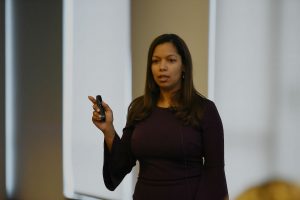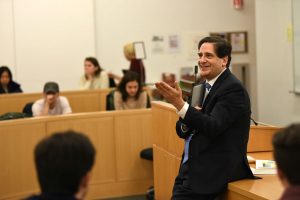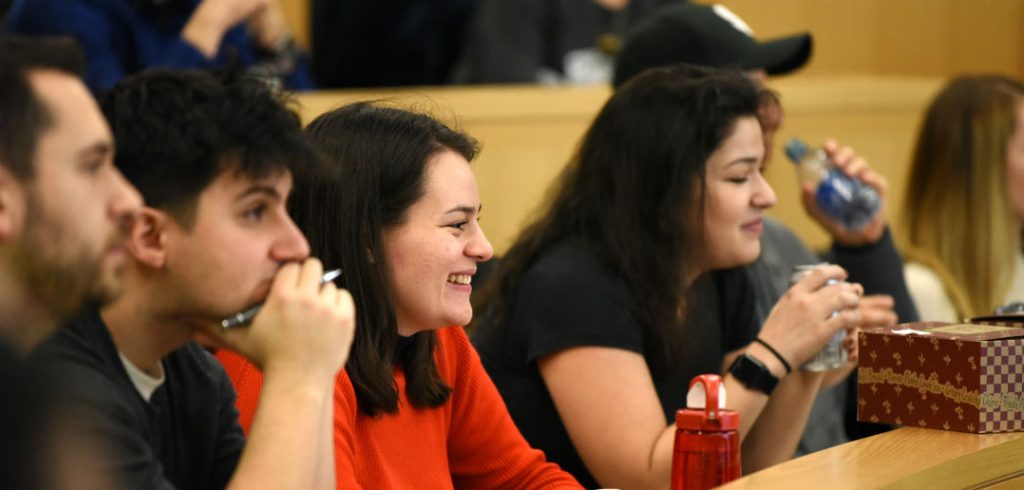“Professional and leadership skills are crucial to success as a lawyer,” says Fordham Law Associate Dean for Academic Affairs Linda Sugin. “Law schools are just starting to recognize that we have a really important role to play in teaching students how to foster inclusion, communicate effectively, and navigate differences with sensitivity, empathy, and skill.”

As part of Fordham Law’s commitment to making professionalism a core part of legal education, the Law School recently held its first ever spring orientation for first-year law students returning from their winter break. In preparation, every student completed a set of online modules developed by Open Mind, an organization dedicated to fostering understanding across differences by teaching concepts from moral and social psychology. In the class session, students focused on recognizing cognitive distortions and constructively engaging with each other on contemporary legal issues, including artificial intelligence, LGBTQ rights, immigration, abortion, incarceration, and drug decriminalization. Students practiced identifying the moral foundations underlying their positions and crafting arguments that appealed to the moral foundations of students who disagreed with them. The session was designed to teach students how to disagree for understanding, and how to make more compelling legal arguments by expanding their moral foundation perspective.

Rosevelie Márquez Morales ’02, adjunct professor and East Coast diversity director at Sidley Austin LLP, taught the session on cultivating inclusive environments, opening with Chimamanda Ngozi Adichie’s TED Talk, “The Danger of a Single Story.” She offered students strategies for interrupting bias and becoming an inclusive leader. Professor Morales offered recommendations for allyship, and introduced students to “imposter syndrome,” which is felt by many law students, as well as 65 percent of the legal profession. Students practiced recognizing situations in which people were treated with bias, by analyzing a series of hypotheticals about lawyers and law students. They left armed with tools for fostering greater inclusion in their classrooms and work places.
Why hold an orientation at the start of the spring semester? “Fall orientation is just too early,” Sugin explained. “Now, the students know each other well enough to have the difficult conversations that people in a community should have. They recognized some of their differences in background, identity, and politics, but were able to come together and seek common ground.”

Rounding out the day’s events was an open discussion with Dean Matthew Diller. After the tumult of the first semester of law school and before diving into the second, the forum was an opportunity to take a moment to ask, “What does the law school experience mean as a whole?” Dean Diller also asked students how the first semester did or did not meet their expectations, inviting them to share what surprised them. The freewheeling discussion then turned to the rule of law, a persistent theme in current headlines.
“Professionalism is the most important thing students need, and it is the biggest hole in law school curriculum,” emphasized Sugin. “At Fordham, we are committed to helping students develop into lawyers who can work effectively with everyone.”

